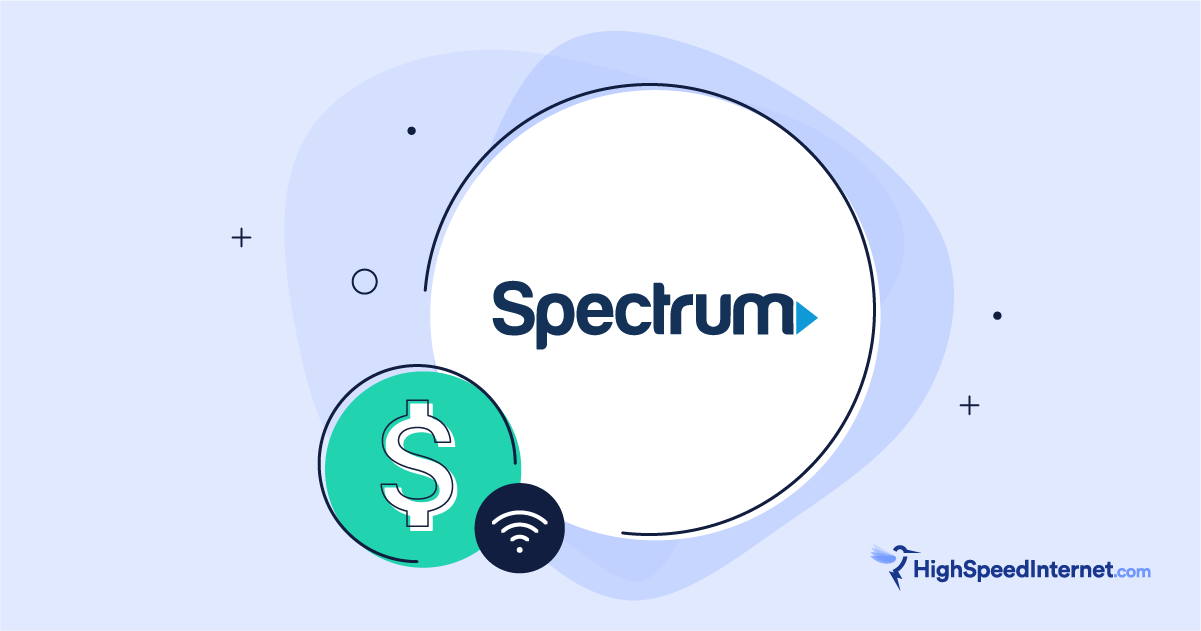Compare Unlimited Home Internet Plans Without Data Caps
Forget about overage fees and tracking your data usage
Dec 10, 2025 | Share
Brand Guides
-
Best overallAstound 300Mbps Internet
- $30.00/mo.*
- #1 for Customer Choice in 2025**
- #1 for Best Value in 2025**
- Excellent prices for fast speeds
- Price hikes after 12 or 24 months
- Mandatory network and maintenance fees
-
Best fiber pickVerizon Fiber 300Mbps
- $49.99/mo.†
- #1 for Reliability in 2025**
- #2 for Customer Choice in 2025**
- No hidden fees or price hikes
- No fiber internet outside the Northeast
-
Best 5G optionT-Mobile Rely Home Internet
- $50/mo.‡
w/ AutoPay, plus taxes & fees. - Excellent mobile phone and internet bundles
- Fast speeds in metro areas
- Lots of promotions
- Less reliable than cable or fiber internet
- $50/mo.‡
Data as of 12/10/2025. Availability and speed may vary by location, and prices are subject to change. See disclaimers.
Astound offers the best unlimited internet service in the U.S., starting with its 300Mbps option for just $30 per month. Astound has a great reputation for customer service, and you get enough bandwidth to support the average household and freedom from contracts and overage fees—all for about the price of a subscription to Max.
Read on to learn more about our other top recommendations for unlimited plans, the benefits of internet plans without data caps, and how much data you really need.
Shopping for home internet with unlimited data?
Enter your zip code to find no data cap plans.
On this page:
Best unlimited internet plans | What to look for | How much data you need | Providers that have data caps | Astound | Verizon Fiber | T-Mobile Home Internet | Google Fiber | Spectrum | Our verdict | FAQs
On this page:
The best unlimited internet plans
| Recognition | Plan | Price | Shop now |
|---|---|---|---|
| Best overall | Astound 300Mbps Internet | $30.00/mo.* | View Plans for Astound |
| Best for fiber | Verizon Fiber 300Mbps | $49.99/mo.† | View Plans for Verizon Home Internet |
| Best for 5G | T-Mobile Rely Home Internet | $50/mo.‡ w/ AutoPay, plus taxes & fees. | View Plans for T-Mobile Home Internet |
| Best for speed | Google Fiber Core 1 Gig | $70.00/mo.§ | View Plans for Google Fiber |
| Easiest to get | Spectrum Internet Premier | $50.00/mo.|| for 12 mos. | View Plans for Spectrum |
Data as of 12/10/2025. Availability and speed may vary by location, and prices are subject to change. See disclaimers.
Many providers give you unlimited data as part of your package—but you still need to think about speeds, reliability, total costs, and customer satisfaction. Here’s a breakdown of which plans are best and why.
-
-
-
-
- Best deal all-around: Astound’s 300Mbps plan gives you solid performance for a remarkably low price with regular promotions and discounts.
- Best for fiber: Verizon offers fast fiber internet for less than $50 per month, complete with no data caps, contracts, hidden fees, or equipment costs
- Best for 5G: Prices for T-Mobile Home Internet start low and get even lower when you bundle with a mobile phone plan. Plus, you get free equipment and simple, stress-free setup.
- Best for speed: Google Fiber offers gigabit upload speeds to ensure a perfect connection for hosting livestreams, uploading content online, or attending Zoom meetings.
- Easiest to get: Spectrum’s cable internet is widely available and offers truly unlimited data on every plan.
-
-
-
Find out exactly how much speed you need
The best unlimited plans have speeds of at least 300Mbps. That’s our recommended speed for the average household. But you might be able to save money if you live in a small household or don’t spend a lot of time streaming or gaming.
Answer six quick questions for a personalized speed recommendation.
How Much Internet Speed Do You Need?
Est. Time: 60 seconds
Answer 6 questions and get a personalized internet speed recommendation!
How many people in your household use the internet/WiFi on a daily basis?
How many devices in your home connect to the internet, including tablets, gaming consoles, and smart devices?
How many people in your household work from home?
What video quality do you use for streaming TV and movies?
How intensely does your household participate in online gaming?
Does your household download large files from the cloud or via the internet?
What to look for in an unlimited home internet plan
We track thousands of plans from hundreds of providers, and we selected the top unlimited internet options for 2026 based on a few criteria. If you’re shopping for a plan with no data caps, you need:
-
-
-
-
- Speeds of about 300Mbps
- A total price of $50–$75 per month (including equipment costs and fees)
- No annual contracts
- Excellent customer service
- Solid reliability
-
-
-
We didn’t dock any plans for a lack of deals, but we gave extra credit to providers that offer discounts and promotions to new customers. No reason to leave cash on the table!
How much data you need
The average household in the U.S. eats through 500–700GB of data every month, according to a 2024 study by Open Vault. That’s well below the 1TB data cap we see on some plans, and it means many households can do all the gaming, streaming, and video conferencing they want without worrying about data caps.
However, the same study found that about 25% of homes use 1TB of data per month or more. If those families don’t have unlimited data, they will likely run into data caps. That could mean slowdowns, overage charges, or the need to buy a more expensive plan.
Fortunately, many providers have dropped data cap policies as the American appetite for data has grown.

Pro tip:
Learn more about how much internet data you need. Then, when you’re shopping for a new plan, you can spot data limits in broadband nutrition labels on every provider’s website.
Providers that still have data caps
Data caps are rare among fiber and DSL internet providers, but some cable internet providers still enforce them (and charge extra if you exceed them). Other providers have soft data caps, which mean major slowdowns if you exceed certain limits.
Here’s a quick list of the providers still hanging on to strict data policies:
Buckeye: You may have a monthly data limit as low as 250GB on certain plans.
Cox: Most plans limit monthly data to 1.28TB per month.
EarthLink: Some plans have monthly data limits as low as 300Mbps, but others have unlimited data.
Hughesnet: You get unlimited standard data but only 100–200GB of priority data with Hughesnet plans.
Sparklight: You may have a cap as low as 700GB per month, but some plans offer unlimited data.
Starlink: Most plans offer unlimited standard data, but budget plans cap roaming data at 50GB or limit residential customers to deprioritized data.
Best overall: Astound 300Mbps
Starting at $30.00/mo.*
-
-
-
-
- Speeds: Up to 300Mbps
- Customer satisfaction rating: 3.5/5#
-
-
-
Read disclaimers.
Astound takes the prize for the best unlimited data internet plan of 2026 for its 300Mbps plan, which rings in at just $30 per month. You get those sweet speeds with no contracts, data limits, or equipment costs.
Better yet, other customers think you’ll love this provider. It earned two top spots in our 2025 Annual Review, one for Value and one for Customer Choice. Plus, Astound regularly rewards new customers with sweet gift cards or a month of free internet service. Not too shabby!
While we love what Astound offers, there are a few caveats. The provider offers different plans and speeds based on where you live, and some plans on the West Coast come with data caps in the range of 300–1,000GB per month. Second, prices go up in the range of $10–$25 per month after a year or two of service. It’s not great, but you’ll still pay less than with other providers. Finally, Astound adds “network development fees” to customer bills in some parts of the country. They only amount to about $7 per month, but they feel a little sneaky.
 Pros:
Pros:
- #1 for Customer Choice in 2025
- #1 for Value in 2025
- Excellent prices for fast speeds
 Cons:
Cons:
- Price hikes after 12 or 24 months
- Mandatory network and maintenance fees

Pro tip:
You definitely want an unlimited data plan if you spend a lot of time on Zoom since video conferences can use up a lot of data per hour. Take a look at our guide to Zoom data usage to calculate how much data you consume.
Best unlimited fiber internet: Verizon Fiber 300Mbps
Starting at $49.99/mo.†
-
-
-
-
- Speeds: Up to 300Mbps
- Customer satisfaction rating: 4/5#
-
-
-
Read disclaimers.
Verizon offers excellent home internet service, with plans starting at 300Mbps for $49.99 per month. That price is stable, and there aren’t any hidden fees to worry about. In addition to unlimited data, you get free equipment and installation (as long as you order online).
And don’t forget about perks and extras! You get great discounts for bundling with mobile phone service, and you might earn stellar prizes for signing up, like free streaming subscriptions, free tech gear, or gift cards worth hundreds of dollars.
The biggest downside with Verizon fiber is that it’s available only in the Northeast. Elsewhere, you may qualify for Verizon 5G or 4G LTE home internet but won’t enjoy the same reliability or speed as with fiber internet. Either way, you can expect excellent customer service and plenty of perks.
 Pros:
Pros:
- #1 for Reliability in 2025
- #2 for Customer Choice in 2025
- No hidden fees or price hikes
 Cons:
Cons:
- No fiber internet outside the Northeast
Best for cheap internet: T-Mobile 5G Home Internet Rely
Starting at $50/mo.‡
-
-
-
-
- Speeds: 133–498Mbps
- Customer satisfaction rating: 4.1/5#
-
-
-
Read disclaimers.
T-Mobile’s 5G Home Internet service is the best 5G home internet you can get, and you can get it virtually anywhere in the U.S. The service works over a fixed wireless connection using the cell company’s 5G network, and your speeds come at a fixed monthly rate with no price hikes and no extra fees for equipment or installation. This simple setup has earned T-Mobile fantastic scores in our Annual Customer Satisfaction Survey.
T-Mobile offers a discount of $15 per month on 5G Home Internet when you sign up for certain premium mobile phone plans. Plus, you can often get extras like a free home security package or a subscription to Netflix.
T-Mobile is an excellent provider of mobile phone service and home internet, but keep in mind that internet service is deprioritized relative to phone service. Plus, a 5G connection will never be as fast or as stable as a hardwired connection over cable or fiber. It will still outshine DSL and satellite, though, and the prices are hard to beat.
 Pros:
Pros:
- Excellent mobile phone and internet bundles
- Fast speeds in metro areas
- Simple setup
 Cons:
Cons:
- Less reliable than cable or fiber internet
Best for speed: Google Fiber Core 1 Gig
$70.00/mo.§
-
-
-
-
- Speeds: Up to 1,000Mbps
- Customer satisfaction rating: 4.3/5#
-
-
-
Read disclaimers.
We’re not shy about our love for fiber internet—and Google Fiber is the sweetest fiber you can get. It’s relatively affordable, costing just $70 a month with no hidden costs for installation or equipment. It’s wicked fast, giving you gigabit downloads and gigabit uploads, all the better to ease a busy work-from-home life involving lots of Zoom meetings or livestreams.
If you’re not content with 1,000Mbps speeds, you can upgrade to the obscenely fast 8Gbps plan. That will give you enough internet bandwidth to stream multiple movies in 4K simultaneously and leave room for your Bitcoin-mining rig.
Besides prices that are on the high end for what we recommend and no plans of less than a gig, the biggest drawback of Google Fiber is that it’s hard to get—it serves only about 1.2% of U.S. households. If you can get it in your area, we say go for it.
 Pros:
Pros:
- Fastest upload speeds
- Easy setup
- Simple pricing
 Cons:
Cons:
- Limited availability
- No budget plans
Easiest to Get: Spectrum Internet Premier w/ Spectrum Advanced
$60/mo.|| for 12 mos.
-
-
-
-
- Speeds: Up to 500Mbps
- Customer satisfaction rating: 3.7/5#
-
-
-
Read disclaimers.
Spectrum is a cable provider with a huge nationwide footprint—you can get Spectrum plans in 43 states, serving nearly 40% of the U.S. population. So, if you want unlimited data, fast speeds, and easy availability, Spectrum is a great option.
We like the Spectrum Internet® Premier plan because it has a decent starting price. Streaming, gaming, Zooming, and downloading large files will all come easily, even when you’re sharing your connection with several people.
Spectrum’s cable modem or gateway is free to use, but you have to pay extra for Wi-Fi unless you purchase your own router. Then, monthly prices go up after a year or two (especially if you don’t bundle your internet plan with TV or mobile phone service).
 Pros:
Pros:
- Affordable prices
- Large footprint, making it easy to get
 Cons:
Cons:
- Price increases after your promotional period
- Extra charge for Wi-Fi
Our verdict
Great unlimited internet should offer speeds of about 300Mbps and cost around $50 per month, all told. Our top picks from Astound, Verizon Fiber, and T-Mobile 5G fit the bill, with some caveats.
You can also find great internet with no data caps from providers like Google Fiber, Spectrum, AT&T, and Quantum Fiber, though you’ll pay a little more than our $50 target.
Fortunately, data caps are increasingly rare, and even when you can’t escape them, they’re usually higher than the average household needs. You should still read your disclaimers and your broadband nutrition label anytime you sign up for a new plan, and don’t be afraid to shop for service again in about a year.
You deserve great internet at a great price, and you can save hundreds of dollars per year by putting in a little effort upfront.
Looking for an internet plan with no data caps?
Enter your zip code to find the best unlimited internet plans in your area.
Unlimited data internet FAQ
How do you get unlimited Wi-Fi at home?
What’s the difference between unlimited home internet and unlimited Wi-Fi?
How long does 100GB of data last?
Is there an unlimited hotspot plan?
Is home internet really unlimited?
What is bandwidth throttling?
Can you get unlimited data on a mobile hotspot?
Disclaimers
Best unlimited internet plans
* Astound Internet 300Mbps
- Observed speeds may vary | One-time fees extra | Restrictions apply | Not available in all areas | New residential customers only
† Verizon Fiber 300Mbps
- Price per month with Auto Pay & without select 5G mobile plans. Consumer data usage is subject to the usage restrictions set forth in Verizon’s terms of service; visit: https://www.verizon.com/support/customer-agreement/ for more information about 5G Home and LTE Home Internet or https://www.verizon.com/about/terms-conditions/verizon-customer-agreement for Fios internet.
‡ T-Mobile Rely
-
Guarantee exclusions like taxes and fees apply.
§ Google Fiber Core 1 Gig
- Plus taxes and fees. Upload/download speed and device streaming claims are based on maximum wired speeds. Actual Internet speeds are not guaranteed and may vary based on factors such as hardware and software limitations, latency, packet loss, etc.
|| Spectrum Internet Premier
- Limited time offer; subject to change; new residential customers only (no Spectrum services within past 30 days) and in good standing with Spectrum. Taxes and fees extra in select states. SPECTRUM INTERNET: Standard rates apply after promo period. Additional charge for installation. Speeds based on wired connection. Actual speeds (including wireless) vary and are not guaranteed. Services subject to all applicable service terms and conditions, subject to change. Not available in all areas. Restrictions apply.
# Customer satisfaction rating
- Provider star ratings are based on user reviews and our independent customer satisfaction survey.
** Annual Internet Service Provider Review 2025
- Read our annual internet review for more information.
Author - Chili Palmer
Chili Palmer covers home tech services, with a special focus on understanding what families need and how they can stay connected on a budget. She handles internet access and affordability, breaking news, mobile services, and consumer trends. Chili’s work as a writer, reporter, and editor has appeared in publications including Telecompetitor, Utah Business, Idaho Business Review, Benton Institute for Broadband & Society, and Switchful.com.
Editor - Jessica Brooksby
Jessica loves bringing her passion for the written word and her love of tech into one space at HighSpeedInternet.com. She works with the team’s writers to revise strong, user-focused content so every reader can find the tech that works for them. Jessica has a bachelor’s degree in English from Utah Valley University and seven years of creative and editorial experience. Outside of work, she spends her time gaming, reading, painting, and buying an excessive amount of Legend of Zelda merchandise.





